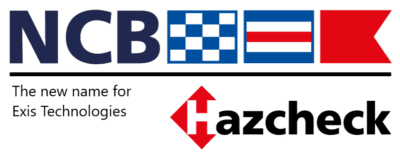TT Talk – Rights of passage – IMDG Code Amendment 37-14
The International Maritime Dangerous Goods (IMDG) Code governs the processes by which classified cargoes may be transported by sea. It is updated every two years and each amendment may, effectively, be used for a maximum period of three years. All amendments prior to Amendment 36-12 are no longer valid – if you are using an older amendment, it is strongly recommended that you upgrade to Amendment 37-14 which entered transitional effect on 1 January 2015.
The IMDG Code was first published by International Maritime Organization (IMO) in 1965. Since January 2004 the Code has been mandatory for SOLAS (Safety of Life at Sea Convention) signatory states, effectively making it a global rulebook for the sea transport of dangerous goods.
Although it is directed primarily at sea transport, the provisions of the Code affect a broader range of industries and services – manufacturers, packers, shippers, inland transport operators (road, rail and inland waterway), port authorities and terminal operators. The IMDG Code is based on the same ‘Orange book’ (UN Recommendations on the Transport of Dangerous Goods – Model Regulations) as other modal dangerous goods regulations. IMDG provides authoritative advice on classification, stowage, segregation, packing, labelling, terminology and emergency response action.
Use the right amendment!
The cycle of applicability of the amendments to the IMDG Code mean that amendment 35-10 and older are now invalid and must not continue to be used. Amendment 36-12 became mandatory on 1 January 2014 and may be used until 31 December 2015. Amendment 37-14 may now be used – and is recommended – since 1 January 2015, becoming mandatory on 1 January 2016 and able to be used until 31 December 2017.
“All amendments prior to Amendment 36-12 are no longer valid – if you are using an older amendment, it is strongly recommended that you upgrade to Amendment 37-14”
As ever, there are a number of changes introduced with Amendment 37-14, particularly marking the completion of the significant structural changes to Chapter 7 to provide detailed requirements for stowage, handling and segregation by ship type (container, ro-ro, general cargo etc). There are new codes that split ‘Stowage and Handling’ from ‘Segregation’.
Another change implemented in this latest amendment is the specific reference to the International Convention for Safe Containers (CSC). This has interesting significance since it means that containers carrying dangerous goods must be marked in accordance with ISO 6346 (the international standard covering the coding, identification and marking of freight containers) where there is reduced stacking or racking capability, and also that containers must be maintained in good condition. Alerting packers who are familiar with the IMDG Code but not CSC is a valuable reminder of some of the container packing basics – and reinforces what is set out in the CTU Code.
As ever, there are newly classified cargoes, mainly relating to absorbed gases and a fair number of changes to packing group details, in part picking up the risks associated with lithium ion batteries.
Of course, the key thing with any change is that those concerned with consigning dangerous goods are appropriately trained. IMDG Code training has been mandatory since January 2010 for all shore side staff involved in dangerous goods transport by sea, including shipping line booking staff, container packers, consolidators, shippers, forwarders and stevedores. “IMDG Code training has been mandatory since January 2010 for all shore side staff involved in dangerous goods transport by sea”
Verified training
The TT Club’s advice is that compliance with the current IMDG Code requires:
1. Ensuring that your own relevant employees are competent;
2. Informing all your customers and contractors of their obligations to train to an appropriate level of competence; and
3. Seeking documentary evidence that all relevant employees of your customers and contractors are trained to an appropriate level of competence.
‘Competence’ – or the ability to do a job properly – is based on both training and on-the-job experience.
Where effective training is not already in place and not easily available to you, the Club continues to recommend the easily accessible and thorough training resource ‘IMDG Code e-learning’ developed by Exis Technologies. The online IMDG Code training courses have been implemented by 12 of the top 20 container lines, and have trained thousands of staff worldwide in the sea transport chain. Exis has launched a new range of role-related function specific courses for Amendment 37-14 IMDG Code training with content more focused on industry requirements, and a new multimodal general awareness course (integrating with road – ADR Regulations – and rail – RID Regulations – plus an overview of air transport provisions). A 49 CFR module which looks at the additional requirements in 49 CFR when shipping into/from the USA under the IMDG Code provisions is also available. The courses have increased emphasis on graphics and interaction to convey key messages, enhancing the learning experience for students and reducing overall study time.
IMDG Code e-learning offers a cost-effective training solution. It is cheaper than classroom training and less disruptive than absence from work. Courses are taken at the student’s own pace or to a timetable set by management. There are tests throughout the course ensuring understanding of learning topics, and marks are combined in a final course completion certificate.
IMDG Code e-learning is sponsored by the TT Club and supported by ICHCA. It is independently certified by Det Norske Veritas (DNV). For more information, and to purchase go to www.imdge-learning.com.







